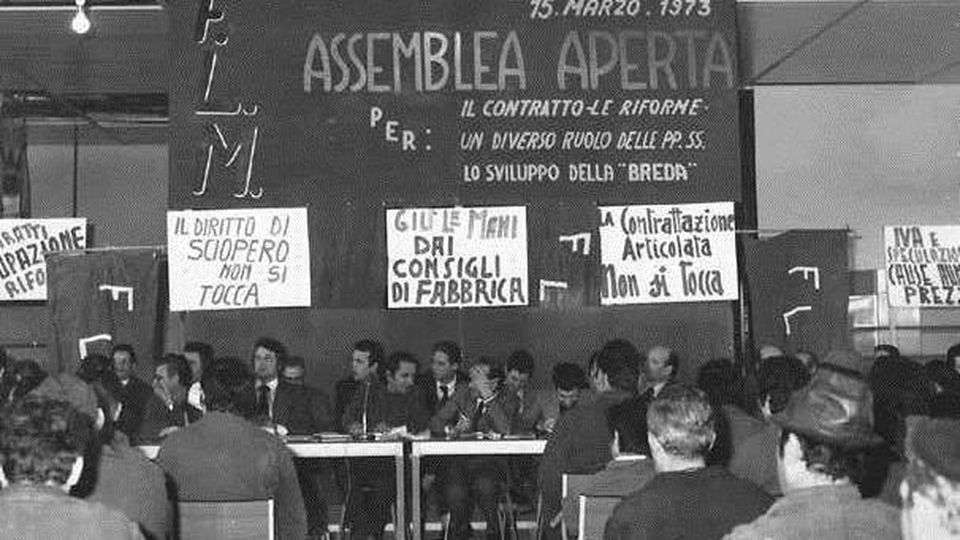WORK-DEM (European Network of Workplace Democracy ) is an interdisciplinary research network on workplace democracy. It is funded by the Centre National de la Recherche Scientifique (CNRS), hosted by the Centre Marc Bloch, and directed by Roberto Frega.

Its members belong to more than ten academic institutions across several European countries and covers diverse academic fields such as political theory, economics, work psychology, political science, work sociology, law, and history.
The network aims at promoting cooperation among scholars with an interest in issues pertaining to the democratization of workplaces, and organizes dissemination events.
The main research topics of interest for network’s members are the following:
 Diversity of meanings of workplace democracy. We acknowledge that democratizing work has a plurality of meanings which vary from discipline to discipline and from one national tradition to the other. Among them, we have to consider at least the following: (1) Systems of representation in the selection of managers/managers, (2) Forms of the relationship between ownership and management of enterprises, (3) Systems of participation in the organisation of activities at work unit level, (4) Autonomy in the exercise of work activities, (5) Equalization of power relations, development of individual resources/capabilities, (6) Inclusion, protection of individual rights, attention to the quality of life at work.
Diversity of meanings of workplace democracy. We acknowledge that democratizing work has a plurality of meanings which vary from discipline to discipline and from one national tradition to the other. Among them, we have to consider at least the following: (1) Systems of representation in the selection of managers/managers, (2) Forms of the relationship between ownership and management of enterprises, (3) Systems of participation in the organisation of activities at work unit level, (4) Autonomy in the exercise of work activities, (5) Equalization of power relations, development of individual resources/capabilities, (6) Inclusion, protection of individual rights, attention to the quality of life at work.
 Relationship between property regimes and democracy. We are interested in exploring whether the democratization of the workplace requires the prior distribution of ownership to employees. Different solutions to the relation between ownership and control has been experimented, with, different results. Yet the question remains theoretically open whether some form of shared ownership provides a necessary prerequisite for the democratization of work.
Relationship between property regimes and democracy. We are interested in exploring whether the democratization of the workplace requires the prior distribution of ownership to employees. Different solutions to the relation between ownership and control has been experimented, with, different results. Yet the question remains theoretically open whether some form of shared ownership provides a necessary prerequisite for the democratization of work.- Experiences and participatory experiments: theoretical and methodological questions. In our diverse academic fields we inquire into workplace democracy through a variety of methodologies which most of the time do not communicate together. What is the relationship between different research methodologies and different conceptions of workplace democracy? Can we investigate all these approaches with the same tools? We are mostly interested in investigating the extent to which research methodologies as diverse as ethnographic research, experimental economics, or the use of quantitative methods can be integrated into a sophisticated approach to workplace democracy.
 Why democratize the workplace? Our aim is to problematize on a large scale the question of the meaning of the democratization of work through the prism of the various actors concerned. Workplace democracy takes on different meaning according to the social actors that promote it: taking the perspective of competitive markets, workers, citizens, shareholders, stakeholders imply adopting a varying perspective on the normative framework, priorities, and preferences.
Why democratize the workplace? Our aim is to problematize on a large scale the question of the meaning of the democratization of work through the prism of the various actors concerned. Workplace democracy takes on different meaning according to the social actors that promote it: taking the perspective of competitive markets, workers, citizens, shareholders, stakeholders imply adopting a varying perspective on the normative framework, priorities, and preferences.- Past and future: a look at past experiences and utopias. We privilege a longitudinal perspective that allows to contextualize present struggles for the democratization of work in the historical context of previous discourses and practices through which this goal has been pursued.